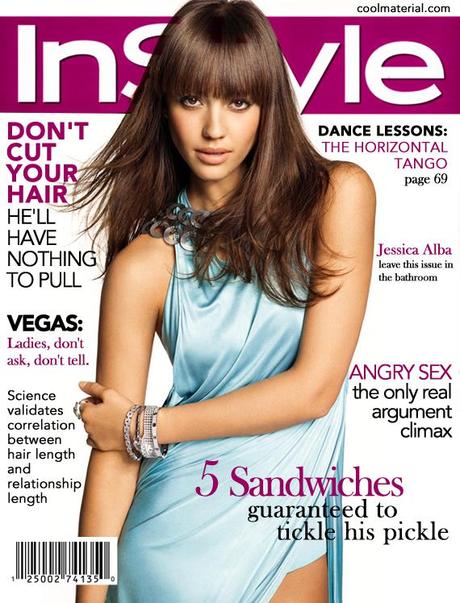
boycotting Women's magazines is my way of saying no to rape culture
My name is Brenna, I’m eighteen, and I’ve been glossy-magazine-free for nine months now. That’s right. Back at the advent of 2011, I decided to eschew Cosmo, Glamour, Seventeen, Vogue, Marie Claire, Lucky, etc., in hopes of escaping a culture that I continually noticed was telling me how to dress, how to look, how to act, and how to spend my money. I began to get more and more skeptical about this form of media which I had previously deemed as harmless.
I’ve had a handful of close encounters– an innocent trip to the magazine racks to find the latest issue of Ms. that quickly turns into a desire to peek and see some pretty picture of pretty clothes and pretty nail polish and pretty people. I haven’t caved, however, and I can personally attest to the wonders it has done to my self-esteem. It’s been nine months now. I no longer want to peek into the glossies. And now that I have established that distance from glossy magazine culture, I feel confident in my ability to criticize the way these magazines both act as a part of society’s sexuality police and teach women how to be the societal sexuality police.
Take, for example, this article, published on Cosmopolitan magazine’s website. The article is about female college freshmen and their vulnerability to sexual assault in the first few weeks on campus. The article makes the claim right under the headline: “Find out why rapists strike so frequently right now– and steps you can take to protect yourself.” It does not, however, give us any information on why rapists apparently strike so often in the first few weeks of college, even though that one bit of information is the most crucial for us to know to combat rape culture.
Women are always seen as the gatekeepers of sex. They are responsible for what happens and what doesn’t happen. They can say yes (but if they do, they’re sluts) and they can say no. But even in cases of rape, where clearly the person being attacked has already said no, we blame them for asking for it, for not taking the proper precautions, for walking at night in skirts, for drinking anything they haven’t brewed themselves, for trusting anyone. This culture of constantly being suspicious of everyone you meet is not a healthy way for anyone to live their life, and yet magazines like Cosmo, along with current rape culture, encourage that attitude. These magazines claim to represent the modern woman, but all they really do is enforce a culture of inferiority, sexual passivity, and blame. We need to hold rapists accountable and stop judging women for what they do and do not do with their bodies.
However, interestingly enough, all of the tips in that Cosmo article came straight from RAINN’s website (an organization that I like and respect very much). After realizing this, I explored RAINN’s website– their mission statement, statistics, and articles on sexual assault prevention. I was glad to see that gender-specific advice and gender-specific pronouns are missing from most of their materials. The organization gives the very clear message that victims are not to blame. The existence of this organization is very important due to the under-reported nature of sexual assault and the vague definitions of rape that can often leave victims afraid to report the crimes committed against them.
The happy fact is, however, I have never been raped or sexually assaulted. I run around with the idealist view that since I know what sexual assault and rape are, I will somehow be able to stop an assailant if I ever find myself in that situation. Many have told me that my views on life are idealistic, and I only recently began to understand why. It’s a product of the privilege that I grew up with. The privilege of having knowledge to combat the constant fear-mongering that is directed towards me as a woman in our culture.
However– if something ever happened to me, it would be because somebody raped me. It would not be because I was in the wrong place, or wearing the wrong thing, or walking by myself, or not carrying pepper-spray, or talking to someone, or not talking to someone, or drinking out of communal punch bowl, or out too late, or not carrying my keys in my hand. And I understand the logic that if it’s going to happen and you can’t control why or when or how, then at least you can take precautions to prevent it. But I am idealistic, and I stubbornly refuse to play that game.
I refuse to be victimized when I am not a victim. I refuse to be forced to live my everyday life in a way different from men simply for fear of potential attacks. It may be foolish, but I refuse. I refuse to prepare to be attacked. I should not have to think that way, and neither should you.

